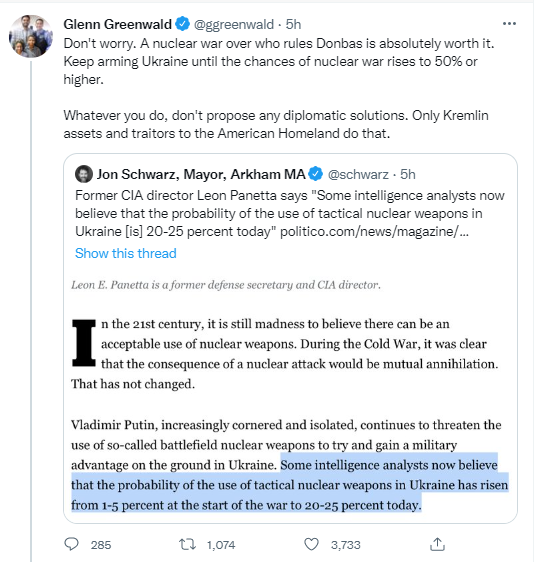Reporters Who Keep Us in the Dark so that They can be Popular with their Peers
Freddie DeBoer points out one of the biggest stories that is not being reported. It is a story that affects (and often corrupts) ALL the big stories. It appears that reporters think of themselves as being back in high school and it appears that their need to be seen as admirable by their peers affects whether they will ask serious questions or whether they will pursue a story at all.
DeBoer is an excellent writer and I subscribe to his Substack. This is a critically important story that is kryptonite to all of the "news" reporters out there with misplaced priorities--in other words, the many "news" reporters who would rather be popular than do the difficult job of being real journalist. Here's an excerpt.
In the fifteen years I’ve written for public consumption, this is the topic I’ve returned to most. I have argued that people who work in the media are in great majorities unduly concerned with being popular among their peers, and that this desire distorts our newsmedia and what it covers in destructive ways. I also believe that the most important site of this kind of social conditioning is Twitter. A corollary to this is that the industry, which will give the most trivial subjects immense amounts of coverage (like, say, the “Try Guys”) avoids talking about the powerful impact of the desire to be popular, a kind of within-industry omerta that prevents anyone from looking too closely at how the sausage gets made. I told this story my first year of writing, I’ve told it most every year since, and I’m telling it again now. Because nothing ever changes.
There are, of course, many people of both talent and integrity within the industry who do their best to avoid this social capture. Many of them are open-minded about who they read and what they’ll engage with. Indeed, the median writer is (unsurprisingly) more thoughtful and willing to challenge consensus than the crowd. But even the most independent of them tend to at least maintain the code of omerta, refusing to publicly question the in-crowd dynamics even if they won’t play into them with their own behavior. And I do get it; they have to live and work in that industry and coexist alongside the peers that they might be criticizing in aggregate. It would, though, make me feel slightly less crazy if more people would say, even occasionally, “people in the industry really want to be well-liked, and they change their public personas and their work to remain so.” What’s frustrating for me is that, while they may not share my level of disdain for this condition, many individual writers have privately conceded the broad contours of what I’m saying. But they don’t do so publicly. Like I said. Omerta.
Of course, the disciplinary action taken against people who speak the way I am is exactly what you’d expect: insiders accuse critics of insiderism of merely being jealous that they aren’t insiders themselves. It can’t be the case that someone like myself could genuinely, organically observe the ways in which media cliquishness distorts the practices of journalism and commentary and advocate for something better. Any such critics must necessarily merely want to be a part of the hierarchy they criticize, sour grapes. Again, it never changes.
What I never understand is why no enterprising media reporter doesn’t ever try to report this out. There are no industries where insiderism and patronage don’t impact the labor market to some degree, so why not try to explore that influence? How does the insiderism of elite media Twitter influence the industry and thus our national story?

